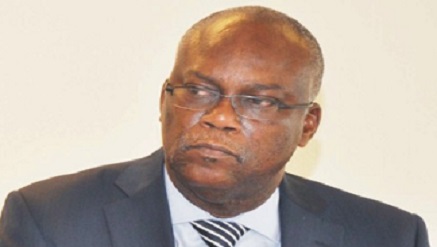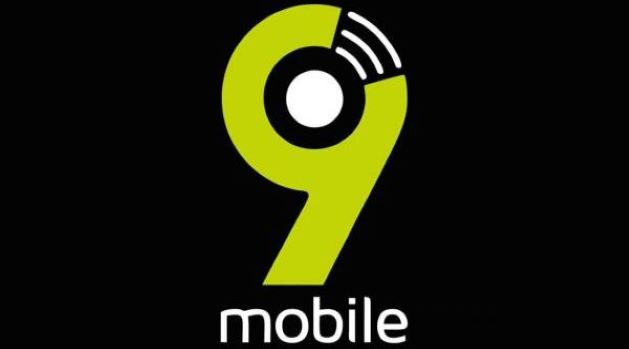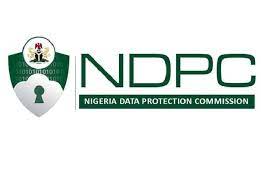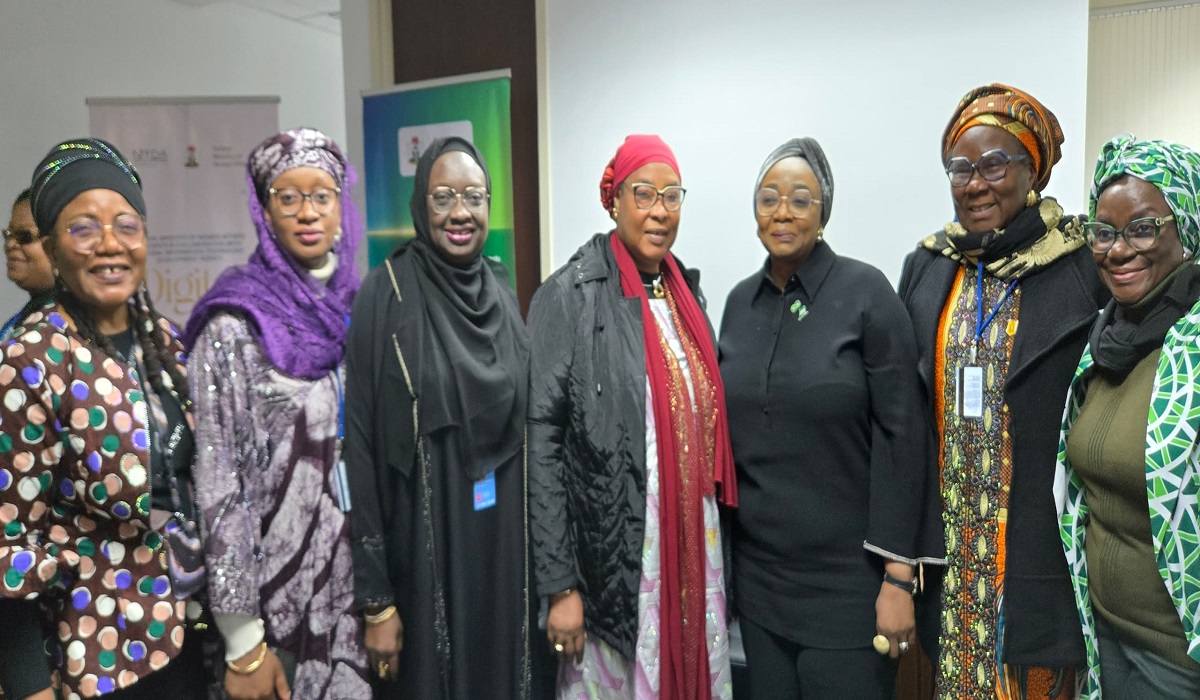Telecom
Mobile Phone Dealers Apprehend Alleged Faker

Efforts of the Phone & Allied Products Dealers Association (PAPDAN), the umbrella group of phone dealers in the country to rid Computer Village, Ikeja, Lagos of the menace of sub-standard and fake phones has paid off as the association’s task force apprehended an alleged Chinese citizen with over 10,000 sub standard phones.
PAPDAN taskforce traced and apprehended Mr. Lin Tian Huan, a Chinese national at No. 4 Cornerstone Estate, opposite Abiola Garden, Alausa, Ikeja, Lagos .
Huan was suspected to be a member of the Chinese cartel responsible in flooding the computer Village with fake and substandard mobile phones passed off for notable brands in the market.
Upon questioning at the computer police post it was discovered that over 10, 000 pieces of different models of mobile phones products have been illegally imported into the country by Huan.
Mr. Iyke Nwosu, PAPDAN’s president said the association is committed to assist the Standard Organisation of Nigeria (SON) to eradicate the menace of substandard and fake products at the Computer Village.
While explaining the steps the association has taken to rid the market of counterfeit products, Nwosu explained that PAPDA N provided an office for SON officials for the establishment of a market desk.
Two staff of SON was subsequently deployed to operate from the office in order to mutually fight substandard products.
Besides, PAPDAN facilitated a joint trip for SON’s top management to China where they visited some phone factories and met with over 65 owners of phone factories to ensure that these factories no longer manufacture and import sub-standard phones into the Nigerian market.
Nwosu also explained that the association and all importers of mobile phones in Ikeja Computer Village market agreed that from July 1, 2014, all mobile phones that would be sold in Nigeria would be products that have been duly registered with SON.
These products must have brand name marks. According to him, passed off mobile phones such as “Nokia and Samsung products will not be stocked and displayed in stores owned by PAPDAN’s members.”
In addition, the group agreed that all mobile phone brands sold in Nigeria market need to have a functional Service Centre, which would cater to “after sales services.” PAPDAN has, however, warned that all products that lack these requirements would be confiscated and destroyed by the “joint taskforce of the SON and PAPDAN.”
Nwosu also disclosed that its group partnership with the SON has led to the registration of over 30 phone brands in the market.
Some of the mobile phone brands that have passed SON’s comprehensive e-product registrations are Gowin, M’horse, Bontel, XGP, Tukaro, Q7, and Soloking.
Others are U-Boss, Oktec, Maxtel, BML, MBO, Teemur, Aus, Mi-phone, Opsson, and MTK. Admet, H-mobile, DXD, Teenic, Simba, Ucall, Treesky, and Gionee and Kenxinda are the others.
Telecom
9mobile Denies Shutdown Rumours, Promises Improved Services

9mobile, telecommunications operator, has described as untrue the rumors suggesting that it has shut down its operations.

according to the telcos, these claims are entirely baseless and aimed at causing unnecessary panic among our valued subscribers, the mobile operator said in a statement.
“We understand that some customers have recently faced challenges, particularly with Mobile Number Portability (MNP), a service that enables seamless network switching.
“We want to clarify that 9mobile has never restricted customers from porting to other networks. We remain fully compliant with industry regulations and committed to delivering fair, transparent, and customer-focused services.
“While there have been temporary technical challenges affecting MNP, these issues have now been largely resolved. Some minor delays may still occur due to ongoing system optimizations, but we are actively working to ensure a smoother experience for all users.
“As a proudly Nigerian brand, we embody the resilient spirit of our people and remain steadfast in our commitment to overcoming challenges. We acknowledge the temporary service disruptions some customers may have experienced in different locations.
“However, we assure you that these disruptions are part of a broader transformation effort aimed at modernizing our infrastructure and improving overall service quality.
“Our ongoing investments in network upgrades and service expansion will soon yield significant improvements, ensuring reliable connectivity for individuals, businesses, and communities.
“We sincerely appreciate the patience and loyalty of our subscribers during this transition. While challenges exist, we are making significant progress and are confident that brighter days are ahead. We remain dedicated to providing exceptional service and keeping you connected to limitless opportunities”.
Telecom
TikTok and Truecaller Face NDPC Investigation Amid Data Protection Concerns

Nigeria Data Protection Commission (NDPC) has initiated an investigation into the data processing practices of Tiktok and Truecaller, following growing concerns about potential privacy violations.

Dr. Vincent Olatunji, the Chief Executive Officer of the NDPC, made the announcement today during a press conference in Abuja, where he also revealed the issuance of the Nigeria Data Protection Act – General Application and implementation directive (NDPC Act – GAID), 2025.
Dr Olatunji stated that the commission’s primary concern is how these platforms manage Nigerian users’ personal data, including potential breaches of consent, data sharing with third parties, and overall compliance with the Nigeria Data Protection Act (NDPA), 2023. He confirmed that the NDPC is actively investigating Tiktok and Truecaller’s data processing activities to ensure they comply with Nigeria’s data protection laws.
“The goal is to safeguard the privacy rights of Nigerians and hold organizations accountable for how they collect, store, and use personal data,” he added.
This investigation comes amid increasing scrutiny of global tech companies regarding data privacy, especially concerning how personal information is processed, stored, and transmitted beyond national borders.
The NDPC act – GAID, 2025, issued today, provides a detailed framework for implementing Nigeria’s data protection law, outlining compliance guidelines, enforcement mechanisms, and obligations for both public and private organizations.
Dr Olatunji emphasized that the directive aims to strengthen Nigeria’s digital economy by fostering trust in data governance while ensuring individuals’ rights to privacy are respected in accordance with international best practices.
He reiterated that companies operating in Nigeria must comply with the country’s data protection regulations or face regulatory actions, including fines and potential restrictions.
The NDPC has urged the public to report any data privacy violations and reaffirmed its commitment to transparency and due process in its investigations.
The commission noted that reporting data breaches has become more accessible through dedicated channels on its official website.
Telecom
Nigeria Charts New Course to Bridge Gender Digital Divide at UN’s CSW69

In a resounding commitment to bridging gender digital divide, the National Information Technology Development Agency (NITDA), in collaboration with the Federal Ministry of Women Affairs (FMWA), has taken a decisive step toward closing the gender digital divide by presenting the National Gender Digital Inclusion Strategy (NGDIS) at the United Nations 69th Session of the Commission on the Status of Women (CSW69). Themed “Digital Harmony: Advancing Gender Inclusion by Empowering Women and Children for a Secure Digital Future,” the high-level event reinforced Nigeria’s commitment to fostering equitable access to digital technology, online safety, and economic empowerment for women and children.

L-R: Esther Eghobamien-Mshelis – President of UN CEDAW, Iklima Musa – Special Assistant to the Director General of NITDA, Noimot Salako – Deputy Governor Ogun state, Maryam Ciroma – former minster of women affairs, Imaan Sulaiman- Minister of Women Affairs, Josephine Anenih – former Minister of women affairs and Dr Maryam Keshinro – Permanent Secretary – Ministry of Women Affairs at the United Nations 69th Session.
Speaking at the event, Iklima Musa Salihu, Special Assistant to the Director General on Strategic Partnerships, presented the strategy, emphasizing NITDA’s role in driving digital transformation and creating opportunities for women and girls to actively participate in the digital economy.
The NGDIS, developed in alignment with Nigeria’s Renewed Hope Agenda and Sustainable Development Goals (SDGs) 5 and 8, seeks to remove barriers to digital inclusion by expanding access to digital skills training, infrastructure, and mentorship opportunities for women and girls.
Kashifu Inuwa Abdullahi, Director General of NITDA as represented by the SA, in his special remarks reaffirmed the Agency’s commitment to ensuring that Nigeria’s digital transformation is inclusive and equitable, highlighting NGDIS as a game-changer in achieving gender parity in the digital space.
He noted that the framework prioritizes digital literacy, entrepreneurship, safety, and gender-responsive policies to accelerate women’s participation in Nigeria’s growing digital economy.
The NGDIS is built on five core pillars that will drive women’s access, participation, and leadership in the digital ecosystem. It seeks to expand digital literacy and skills by ensuring at least 40% female participation in all national training initiatives.
Recognizing the role of women in Nigeria’s innovation and entrepreneurship landscape, the strategy emphasizes access to funding, mentorship, and technical assistance for female-led startups, leveraging the Nigeria Startup Act to increase financial and institutional support for women in the tech ecosystem. With 58% of young women globally experiencing online harassment, the NGDIS prioritizes online safety and cybersecurity awareness.
Speaking at the event, Minister of Women Affairs, Honourable Imaan Sulaiman, FSI, underscored the urgent need for action in tackling gender disparities in digital access.
She revealed alarming statistics that demonstrate the stark reality of the digital divide in Nigeria, highlighting that 68% of Nigerian women do not own smartphones, making it difficult for them to access online services and economic opportunities.
She stressed that this divide extends beyond access, as women and children face significant online risks, including cyber harassment, digital gender-based violence, and exclusion from the rapidly growing tech-driven economy.
She called for the swift implementation of the National Gender Digital Inclusion Strategy (NGDIS) 2024-2027, which seeks to remove the structural barriers that prevent women from fully engaging in the digital economy.
She emphasized the need for strong legal frameworks that would accelerate action in promoting digital literacy, providing safe online spaces, and empowering women to thrive in technology-driven industries.
She reaffirmed that President Bola Ahmed Tinubu’s Renewed Hope Agenda is committed to creating an inclusive digital future where no woman or child is left behind.
She urged all stakeholders to work together to transform digital access and security for women and children, making technology a tool for empowerment rather than exclusion.
As the world embraces the Fourth Industrial Revolution, NITDA in collaboration with stakeholders is taking bold and strategic steps to ensure that women and girls are not only participants but also leaders in the digital transformation journey.
The National Gender Digital Inclusion Strategy is a blueprint for action, providing a clear framework for accelerating digital inclusion, fostering entrepreneurship, and strengthening online safety for Nigerian women and children.

 Broadcasting3 days ago
Broadcasting3 days agoPublic Outrage, Legal Threats as Abuja Council Demands N500, 000 as TV Levy

 E-Financial3 days ago
E-Financial3 days agoFIRS Partners Flutterwave for Digital Payment Collection

 General News2 days ago
General News2 days agoNigeria, Kenya among Nations Running out of HIV Drugs – WHO

 News2 days ago
News2 days agoNAFDAC Destroys over N1 Trillion Fake Drugs in Anambra

 Telecom2 days ago
Telecom2 days agoTikTok and Truecaller Face NDPC Investigation Amid Data Protection Concerns

 Telecom2 days ago
Telecom2 days ago9mobile Denies Shutdown Rumours, Promises Improved Services

 Telecom3 days ago
Telecom3 days agoNigeria Charts New Course to Bridge Gender Digital Divide at UN’s CSW69

 E-Business2 days ago
E-Business2 days agoVisa to Establish Data Centre in Nigeria to ‘Boost Digital Economy’
























